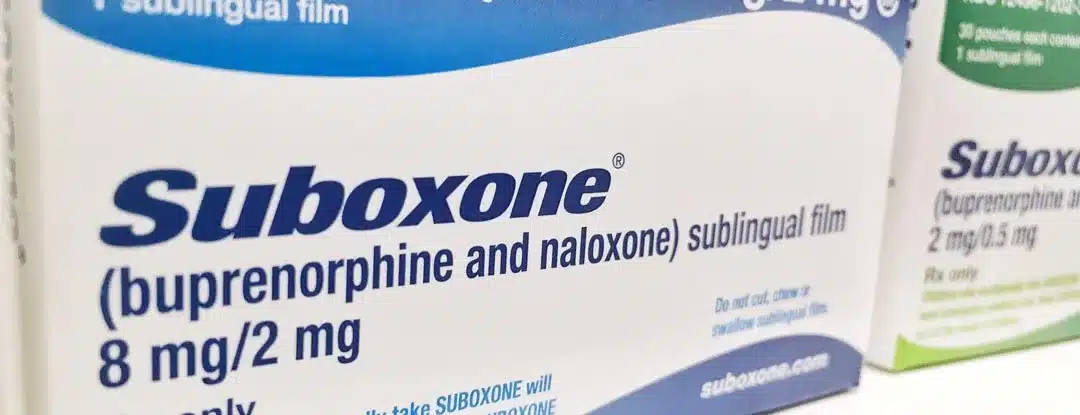Understanding the Half-Life of Suboxone in the Body
More than 80,000 overdose deaths every year in the United States involving these drugs. These include heroin and various types of pain medications. This makes it the number one cause of accidental death in the country (for almost a century, that cause belonged to car crashes).
Fortunately, there are some effective ways of treating opioid addiction. These include counseling, therapy, and medical interventions, like Suboxone.
While useful, many people wonder if their presence can impact drug screenings. These are often necessary for employment or certain volunteer positions.
How long does suboxone stay in your system? That answer depends on many different factors, which will vary from person to person.
This article explains the basics of Suboxone and the benefits it has to offer. It also breaks down how the medication acts in the body and how long you can expect it to remain there. Keep reading to learn more.
What Is Suboxone?
Suboxone is a medication used in the treatment of withdrawal symptoms associated with opiate addiction. This includes recovery from illicit drugs like heroin as well as various types of prescription pain medications, like hydrocodone. It can be an effective tool for the more than two million Americans who have opioid use disorder.
Suboxone is a combination of two drugs: buprenorphine and naloxone. Scientists discovered buprenorphine, an opioid agonist, in 1966. The goal was to create a safer alternative to morphine for pain control.
The U.S. Food and Drug Administration (FDA) approved buprenorphine in 1981. In 2023, they approved an extended-release injection of the drug for moderate to severe opioid use disorder.
Naloxone use began in 1971, as a treatment for opioid overdoses. This was at the start of the heroin epidemic in the U.S.
The FDA approved the combination of the two drugs, Suboxone, in 2002. A generic form of Suboxone has been around since 2018.
You can take Suboxone as a tablet or a sublingual film. Each dissolves in the patient’s mouth. The tablets are less expensive, but the film allows people to taper their dosage as they move through recovery.
What Are the Benefits of Suboxone?

Perhaps the biggest advantage of Suboxone is its effectiveness. The various opioid painkillers are highly addictive because they release endorphins that activate powerful reward centers in the brain. When you stop taking the drugs, these effects go away.
In a short time–and even with “safer” prescription pain medications–you may find yourself wanting to regain that good feeling. Over long-term use, you develop tolerance to the drug, which means you need more of it to achieve the same effects.
Suboxone works by helping correct chemical imbalances created by opioids. Buprenorphine binds to opioid receptors to reduce cravings and withdrawal symptoms.
One of the main reasons people choose Suboxone is that it is less habit-forming than drugs like methadone. For instance, when buprenorphine works on opioid receptors, it does so without inducing the euphoric high typical with heroin or opioids.
Suboxone can have similar side effects as other opioid treatments. These include nausea, headache, sweating, dizziness, drowsiness, and problems concentrating. However, another big advantage of Suboxone is that these symptoms, if they do occur, tend to be less severe.
The benefits above are all related to a final advantage of Suboxone: you can take it at home. Unlike methadone, you do not have to seek out a Suboxone clinic to receive a prescribed dose.
How Long Does Suboxone Stay in Your System?
The short answer to “How long does suboxone stay in your system?” is that it depends. Many factors can influence the duration.
This includes the health and age of the patient. For instance, since the liver filters medications in the body, it may take someone with liver problems longer to process Suboxone. Also, younger people can metabolize medications quicker than older people.
Genetics and body composition can impact how fast drugs evacuate the system. For example, taller people with more muscle mass might be able to process medications much faster than shorter, less lean people.
Also, it is important to distinguish between the half-life of a drug and the ability of drug tests to detect past usage.
Half-Life
The half-life of a drug is the amount of time it takes for the body to process and remove half of it. This period is not impacted by how much of a substance you take or how long or often you have taken it.
With Suboxone, the half-life of naloxone is very short: between two and 12 hours. Buprenorphine has a much longer half-life: between 24 and 42 hours. This makes it a “long-acting” drug.
Drug Screenings
Drug tests are often not just meant to detect if someone is currently on a particular substance, but if they have consumed it in the past. In other words, how the effects of Suboxone last is different than how long it is traceable in the body. The concern typically is how this could impact drug screenings for employment.
Buprenorphine is a Schedule III controlled substance. Naloxone is not a controlled substance, so drug tests do not screen for it.
It is possible to detect buprenorphine up to 90 days following the last use. There are some caveats though.
First, there are many different types of drug tests. This longer duration (up to 90 days) is only detectable by drug tests using hair follicles. Buprenorphine is only picked up by urine, blood, or saliva tests for about a week following the last dose.
Due in part to the prevalence in use, many employer drug screens do not look for buprenorphine. If you are about to undergo a hair test and are concerned about it, mention this to the testing agency. If buprenorphine is detected, you will have already explained the reason for its presence.
Find Recovery Services Near You

Now that you have an answer to “How long does suboxone stay in your system?” you can have a clearer picture of how this might impact drug screenings. Recovery professionals can further advise you on other useful tools for combatting addiction.
Purpose Healing Center is a leader in the behavioral health care industry that ensures the highest quality treatment for every patient through customized plans. We work with most insurance companies and have availability at both our Phoenix and Scottsdale campuses. Reach out to us today to learn more.



